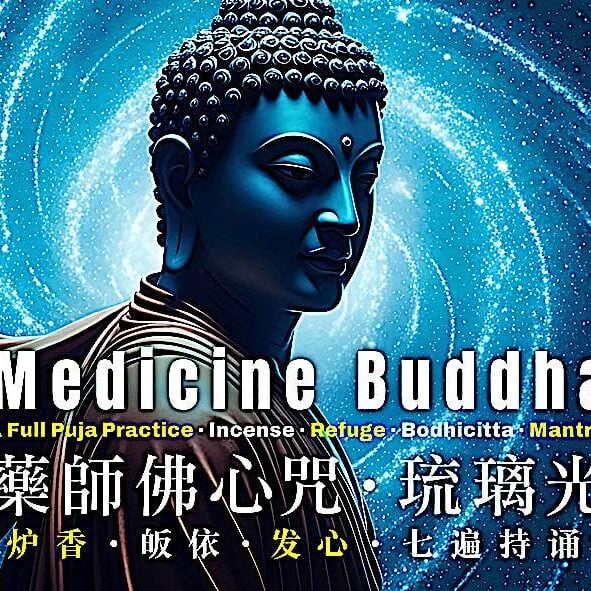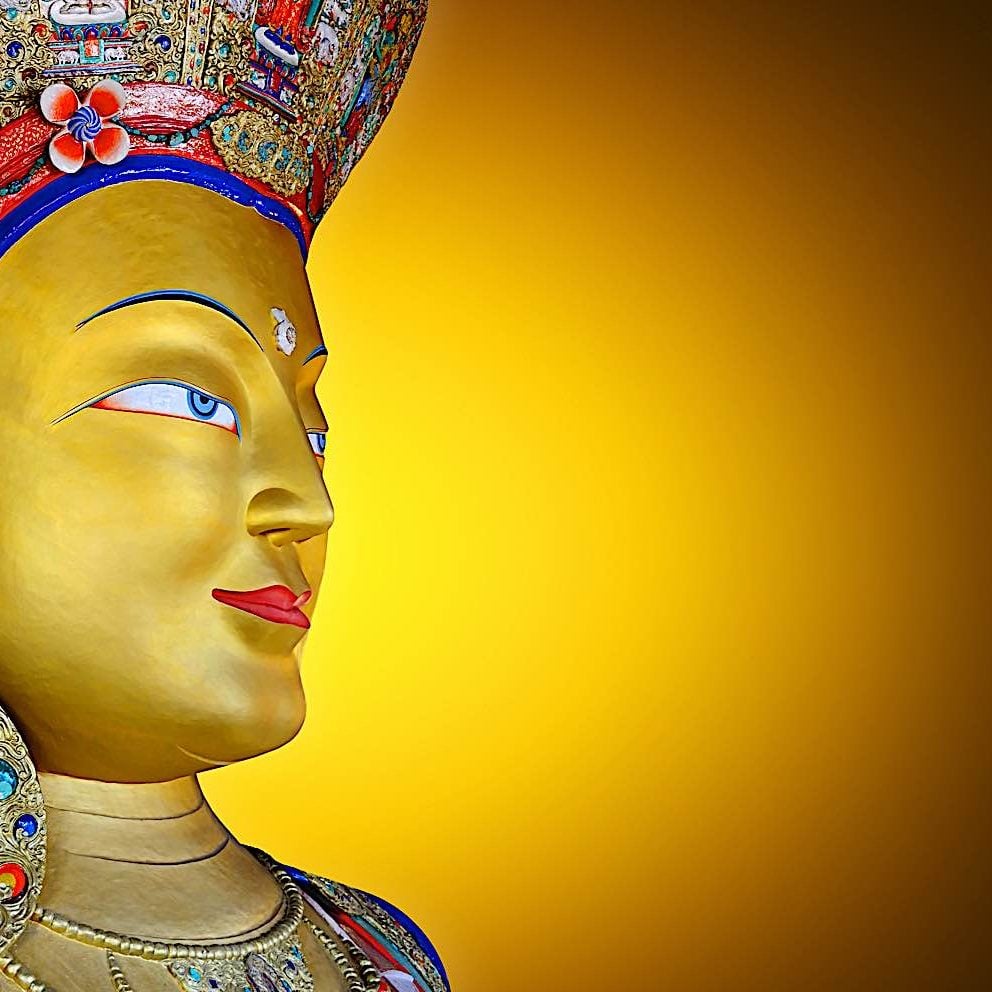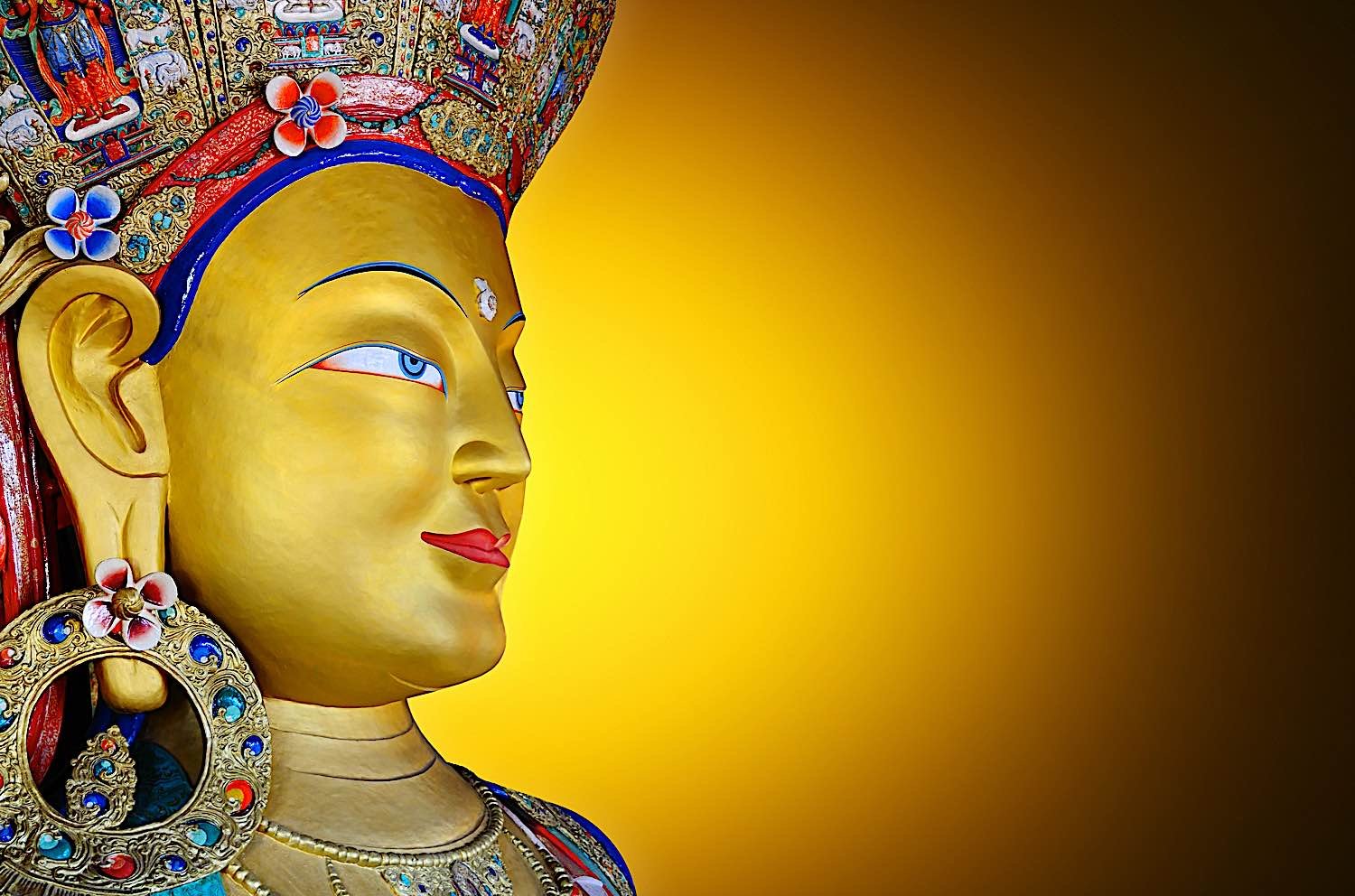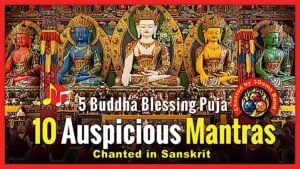Triple Blessed Month: Buddha’s Birth, Enlightenment and Nirvana, 100,000 Merit-Multiplying Month
Why is the fourth lunar month of the year called Month of Merits and why is it the most sacred month of the year for many practicing Buddhists?
Video:
CONTENTS OF VIDEO
00:00-01:00 Buddha’s Life Story and the Triple Blessed Month
01:00-02:000 100 Million Times Merit on Saga Dawa – Lama Zopa
02:00-04:00 How to Celebrate with Generosity, Virtue and Dharma Activity
04:00-05:18 Meritorious Activities: Reciting, Mantras, Volunteering, Animal Rescue
05:18-06:02 Timeline of Buddha’s Life and Birth 563 BCE 4th Lunar Month
06:02-06:51 Four Sights and Renunciation 524 BCE
06:51-07:18 Shakyamuni Awoke — Attained Enlightenment 528 BCE
07:18-08:36 Four Noble Truths and Eightfold Path – First Teaching at Deerpark
08:36-08:50 528 BCE to 483 BCE he Taught and Spread the Dharma
08:50-09:11 483 BCE, 4th Lunar Month, Buddha’s Great Paranirvana
09:11-10:15 Following in His Enlightened Footprints and Helping Spread the Dharma
The most Holy day of the year is the 15th Day of the fourth month, called Saga Dawa Duchen, or the Great Occasion. On this day we celebrate the birth of Shakyamuni Buddha, the Conqueror, together with his Enlightenment and ultimate Paranirvana. For this reason, according to Lama Zopa:
“Saga Dawa Duchen is one of the four great holy days of the Tibetan calendar, each of which celebrates an anniversary of Shakyamuni Buddha’s display of extraordinary powerful deeds for sentient beings’ sake. On these four days, karmic results are multiplied by 100 million, as taught in the Vinaya text Treasure of Quotations.”
Saga Dawa (Sanskrit Vaiśākha) is the fourth month of the Tibetan lunar calendar and is considered the most important Buddhist holiday period of the year. In Tibetan, it is also known as Bumgyur Dawa, “the 100,000 multiplying month”, as all skillful and unskillful actions are said to be multiplied by 100,000 times.
We celebrate this great occasion in this presentation and dedicate the merit to the benefit of all sentient beings.
The entire month is also considered extra merit for any good deeds, such as generosity or any of the other paramitas, for example: volunteer karma activities, making offerings, butter lamp offerings, becoming a vegetarian for the day or the month, and acts of compassion and kindness.
The three grounds of meritorious action are generosity (dana), morality (sila), and mental culture or meditation ( bhavana).
On this day and the entire month, we engage in acts of generosity, virtue, good conduct, right speech, and faith and devotion. We volunteer at Dharma centers. We donate and support the Dharma. We light butter lamps as offerings.
The most devoted lay followers, even though they do not become monks, may take the 8 vows on the 15th day, just for the one day. After the day, we may return to our lay vows, the five vows of a good layperson, but on the Holy Days we try to hold all eight vows, becoming a renunciate for the day. We might also choose to be vegetarian for the day.
Other meritorious activities include copying or reciting sutras. See our linked videos for recitations of sutras, and chant alongs. We also chant mantras. If we are really dedicated we may spend the day meditating, doing our Sadhanas and engaging in Dharma activities.
For the entire month, not just on the day, we might include meritorious deeds such as working for animal rescues, releasing animals destined for slaughter, Vajrasattva purification practices, reciting sutras every day, rejoicing, listening to Dharma teachings in person or online, and scrupulously following the eightfold path as taught by Buddha.
All of these activities are for the benefit of all sentient beings. By honoring the birth, enlightenment and paranirvana of the Buddha, we help Spread the Dharma, and help sentient beings.
Why do we choose this date for celebrations. In the time of Buddha, calendars were lunar based.
According to the latest Archeological evidence, he was born in the fourth lunar month in 563 B.C.E.
#shakyamuni #shakyamuni_buddha #gautama_buddha #gautamabuddha #Buddha #Saga_dawa #Sagadawa #Bumgyur_Dawa #BumgyurDawa
More articles by this author

SUPPORTING MEMBER VIDEO: Tara Samaya Mantra Sanskrit Chanted Wish-Granting, Protection, Renewal, Purification: Music Video

SUPPORTING MEMBER VIDEO: Buddhist Practice: Samaya Mantra. Wish-Fulfilment through Merit, Purification through Remedy

SUPPORTING MEMBER VIDEO: Medicine Buddha Victory Mantra Beautifully Chanted (Gufeng style) with Refuge, Offering, Mantras Dedication

100-Syllable Yidam Samaya Mantra: Union, Bliss, Bonding, Renewal, Purification, Wish Fulfilment and Wisdom
Search
Latest Features
Please support the "Spread the Dharma" mission as one of our heroic Dharma Supporting Members, or with a one-time donation.
Please Help Support the “Spread the Dharma” Mission!

Be a part of the noble mission as a supporting member or a patron, or a volunteer contributor of content.
The power of Dharma to help sentient beings, in part, lies in ensuring access to Buddha’s precious Dharma — the mission of Buddha Weekly. We can’t do it without you!
A non-profit association since 2007, Buddha Weekly published many feature articles, videos, and, podcasts. Please consider supporting the mission to preserve and “Spread the Dharma." Your support as either a patron or a supporting member helps defray the high costs of producing quality Dharma content. Thank you! Learn more here, or become one of our super karma heroes on Patreon.
Lee Kane
Author | Buddha Weekly
Lee Kane is the editor of Buddha Weekly, since 2007. His main focuses as a writer are mindfulness techniques, meditation, Dharma and Sutra commentaries, Buddhist practices, international perspectives and traditions, Vajrayana, Mahayana, Zen. He also covers various events.
Lee also contributes as a writer to various other online magazines and blogs.














